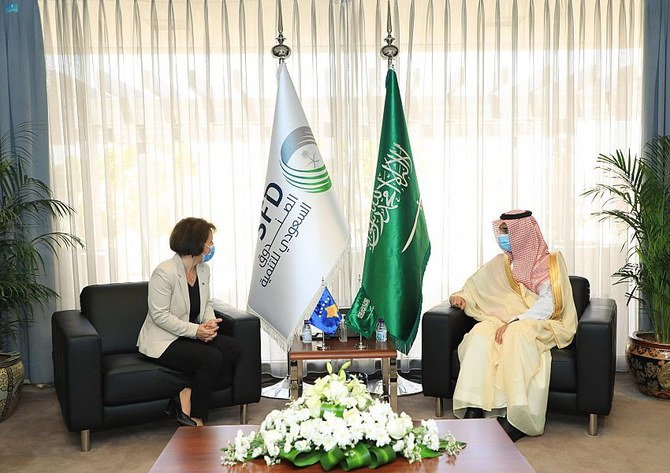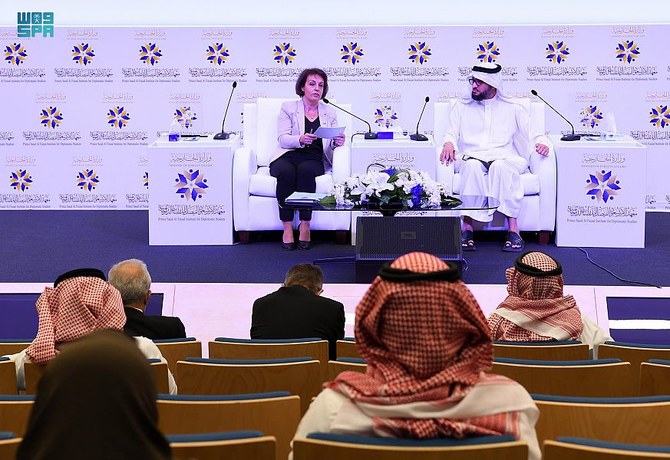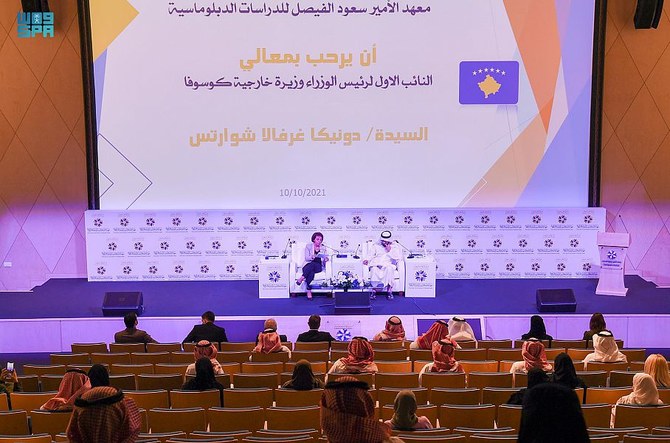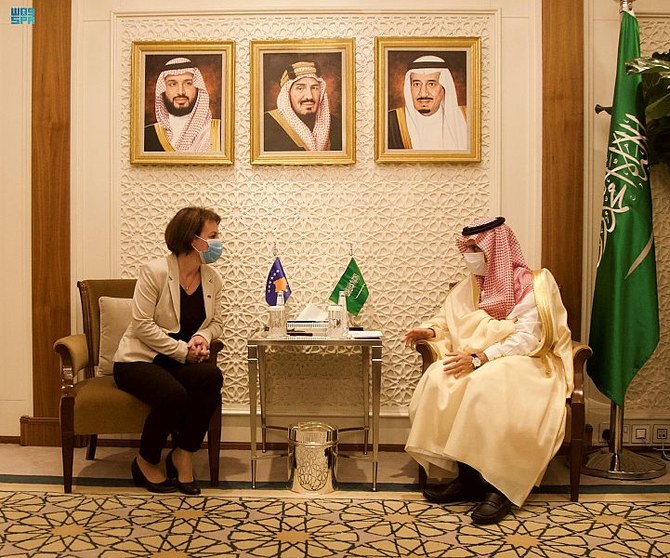RIYADH: Saudi Arabia’s Foreign Minister Prince Faisal bin Farhan held talks with his Kosovar counterpart Donika Gërvalla-Schwarz in the capital, Riyadh on Sunday.
During the meeting, they reviewed relations and joint cooperation between the two countries. The two sides also discussed strengthening aspects of bilateral cooperation in various fields and ways to support and develop them, in addition to regional and international developments.
Gërvalla-Schwarz also met with the CEO of the Saudi Fund for Development Sultan bin Abdul Rahman Al-Murshed during her visit to discuss the fund’s existing development projects in Kosovo.
She thanked the Saudi government for its contribution and support for development projects in her country through the fund.
Gërvalla-Schwarz also delivered a lecture at Prince Saud Al-Faisal Institute for Diplomatic Studies at the Ministry of Foreign Affairs on relations between the Kingdom and Kosovo and regional issues.


Saudi and Kosovo foreign ministers discuss relations
Short Url
https://arab.news/b2tcr
Saudi and Kosovo foreign ministers discuss relations

- Donika Gërvalla-Schwarz also met with CEO of the Saudi Fund for Development
Saudi Foreign Minister discusses developments with Syrian counterpart

RIYADH: Saudi Arabia's minister of foreign affairs Faisal bin Farhan held a phone call on Thursday with his Syrian counterpart Asaad Al-Shaibani.
The ministers discussed developments in Syria and the efforts being made in this regard.
© 2026 SAUDI RESEARCH & PUBLISHING COMPANY, All Rights Reserved And subject to Terms of Use Agreement.

















